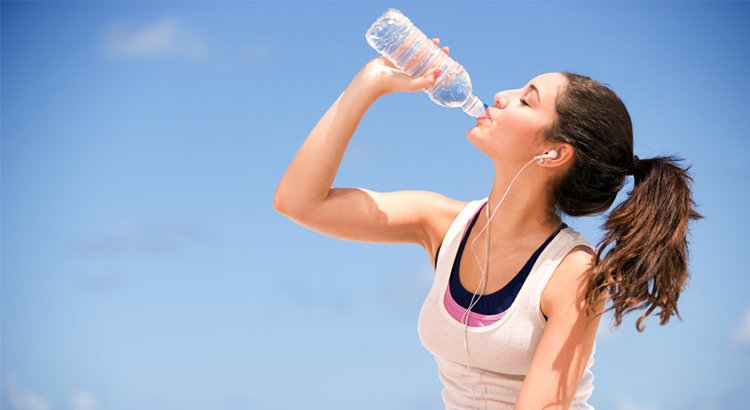Water is an essential component of life, vital for maintaining bodily functions, regulating temperature, and supporting various physiological processes. But the question remains: How much water should you drink every day to stay properly hydrated? In this comprehensive guide, we’ll dive into the science of hydration and provide you with clear guidelines to ensure you’re getting the right amount of water for your unique needs.
Table of Contents
- Introduction
- Understanding the Importance of Hydration
- How Does Water Affect the Body?
- Factors Affecting Daily Water Needs
- Age and Gender
- Activity Level
- Climate and Environment
- Health Conditions
- General Recommendations for Daily Water Intake
- The 8×8 Rule
- Water Needs for Athletes
- Listening to Your Body’s Signals
- Thirst: A Natural Indicator
- Urine Color and Frequency
- Hydration Myths Debunked
- Drinking Only When Thirsty
- Clear Urine is Always a Sign of Hydration
- Dangers of Dehydration
- Impact on Physical Performance
- Cognitive Function and Mood
- Kidney Health
- Strategies to Stay Hydrated
- Carry a Reusable Water Bottle
- Set Hydration Reminders
- Incorporate Water-Rich Foods
- Conclusion
1. Introduction
Water is the elixir of life, and staying properly hydrated is vital for your well-being. In this article, we’ll uncover the science behind daily water consumption and provide actionable insights to help you maintain optimal hydration levels.
2. Understanding the Importance of Hydration
How Does Water Affect the Body? Water plays a crucial role in maintaining bodily functions. It aids digestion, regulates body temperature, cushions joints, and transports nutrients and oxygen to cells. Without adequate hydration, these processes can be compromised, leading to various health issues.
3. Factors Affecting Daily Water Needs
Age and Gender: Different age groups and genders have varying hydration requirements. Children and older adults, for instance, might need to be more mindful of their water intake.
Activity Level: Physical activity increases fluid loss through sweat. Athletes and individuals with active lifestyles need to replenish lost fluids more frequently.
Climate and Environment: Hot and humid climates lead to increased sweating and higher fluid loss, necessitating higher water intake.
Health Conditions: Certain medical conditions like diabetes or kidney problems may require adjustments to daily water intake.
4. General Recommendations for Daily Water Intake
The 8×8 Rule: A common guideline suggests drinking eight 8-ounce glasses of water per day, totaling around 2 liters. This rule provides an easy-to-remember benchmark.
Water Needs for Athletes: Athletes and those engaged in vigorous exercise may need more water to compensate for fluid loss during workouts.
5. Listening to Your Body’s Signals
Thirst: A Natural Indicator: Your body’s thirst mechanism is an effective indicator of when to drink water. Pay attention to cues of thirst and sip water throughout the day.
Urine Color and Frequency: Pale yellow urine indicates proper hydration, while darker urine signals the need for more fluids. Frequent trips to the restroom can also be a sign of adequate hydration.
6. Hydration Myths Debunked
Drinking Only When Thirsty: Relying solely on thirst might lead to mild dehydration. It’s important to drink proactively, especially during physical activities.
Clear Urine is Always a Sign of Hydration: While pale urine is a positive indicator, very clear urine might suggest overhydration, which can dilute essential electrolytes.
7. Dangers of Dehydration
Impact on Physical Performance: Dehydration can lead to reduced endurance, decreased strength, and impaired physical performance.
Cognitive Function and Mood: Even mild dehydration can negatively affect cognitive function, leading to difficulties in concentration and mood swings.
Kidney Health: Chronic dehydration can strain the kidneys and increase the risk of kidney stones and urinary tract infections.
8. Strategies to Stay Hydrated
Carry a Reusable Water Bottle: Keep a refillable water bottle with you to remind yourself to drink water consistently throughout the day.
Set Hydration Reminders: Use technology to your advantage by setting alarms or notifications to prompt you to take a water break.
Incorporate Water-Rich Foods: Foods like fruits, vegetables, and soups contribute to your daily hydration needs and provide essential nutrients.
9. Conclusion
Proper hydration is a cornerstone of good health. By understanding the factors influencing your daily water needs, listening to your body’s signals, and dispelling common hydration myths, you can maintain optimal hydration levels and support your overall well-being. Remember, staying hydrated is a personalized journey that requires attentive care and a commitment to nurturing your body’s most fundamental needs.
FAQs
1. How does drinking water benefit my skin’s health? Proper hydration can improve skin elasticity and moisture, promoting a healthy and youthful appearance.
2. Can drinking too much water be harmful? Yes, excessive water intake without balancing electrolytes can lead to a condition called hyponatremia, which disrupts the body’s sodium levels.
3. Are beverages other than water counted in daily intake? Yes, beverages like herbal tea, fruit-infused water, and milk contribute to overall hydration, but water remains the best choice.
4. Does coffee dehydrate the body? While coffee is a diuretic, moderate consumption doesn’t significantly dehydrate you. It’s still important to balance coffee intake with water consumption.
5. Can fruits and vegetables replace water intake? While water-rich foods contribute to hydration, they shouldn’t replace the need for plain water. Combining both is the ideal approach for staying hydrated.








